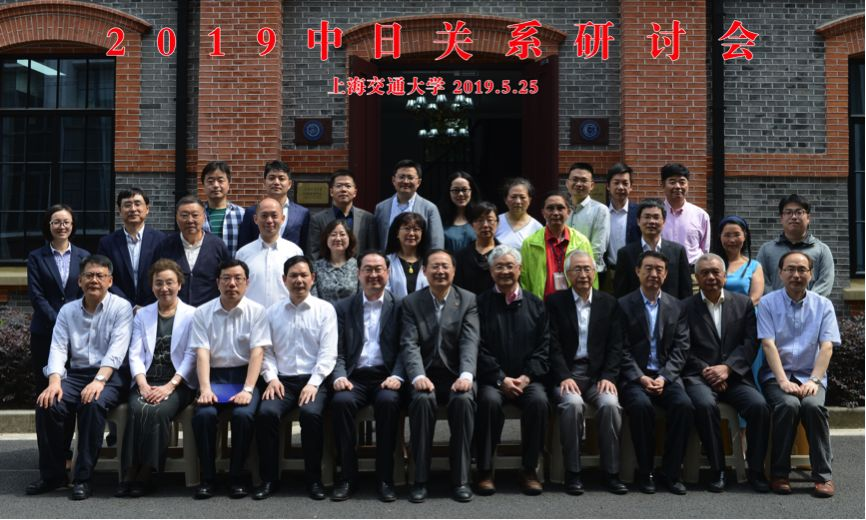In recent years, China Japan relations have obviously warmed up, and bilateral cooperation and exchanges in economic and other fields have been expanding. In particular, since the leaders of the two countries decided to take the 45th anniversary of the establishment of diplomatic relations between China and Japan (2017) and the 40th anniversary of the conclusion of the China Japan Peace and Friendship Treaty (2018) as an opportunity to resume and develop bilateral relations, a new atmosphere of strategic interaction has emerged between China and Japan. However, due to the complexity of China Japan relations, further promoting the healthy and stable development of bilateral relations and in-depth discussion on the current problems facing China Japan relations have become an important issue that Chinese scholars urgently need to solve. Against this background, the "2019 China Japan Relations Seminar", sponsored by the Japan Research Center of Shanghai Jiaotong University and co organized by Kaiyuan School of Law, School of International and Public Affairs and School of Foreign Languages of Shanghai Jiaotong University, was held on May 25, 2019 on the fourth floor of the north of Xuhui Campus of Shanghai Jiaotong University. The purpose of this seminar is to give full play to the academic resources and research advantages of relevant domestic units and disciplines, explore the orientation and trend of China Japan relations in the new era, and discuss three topics: China Japan foreign policy, international environment and China Japan relations, Japan's economy and China Japan cooperation, so as to contribute wisdom to the further development of China Japan relations.
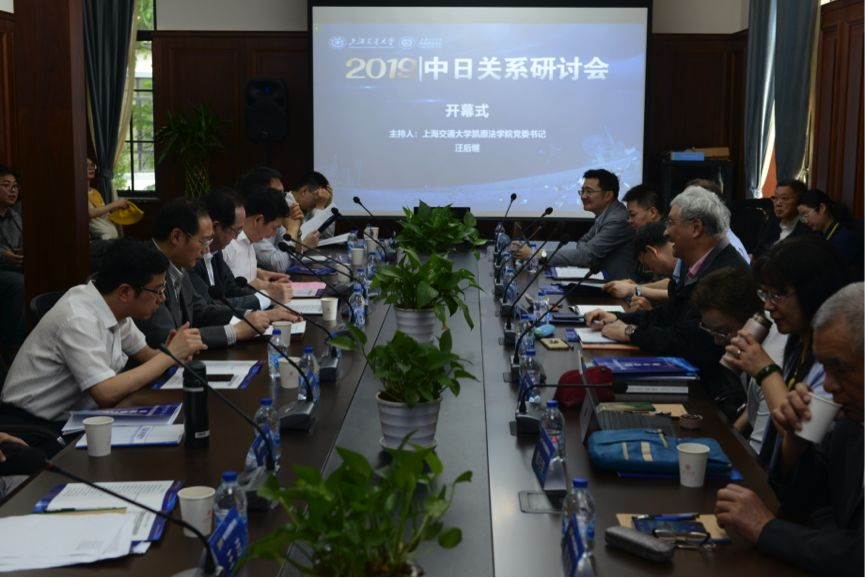
Gu Feng, Deputy Secretary of the Party Committee of Shanghai Jiaotong University, Jiang Wenning, Secretary of the Party Committee of the School of International and Public Affairs of Shanghai Jiaotong University, and Ji Weidong, Director of the Japan Research Center of Shanghai Jiaotong University attended the opening ceremony and delivered speeches. Wang Suiji, Secretary of the Party Committee of Kaiyuan Law School of Shanghai Jiaotong University, presided over the opening ceremony. Wu Jinan, President of the Japan Society of Shanghai, Wang Shaopu, Advisor of the Japan Research Center of Shanghai Jiao Tong University, and more than 20 experts and scholars from institutions such as Shanghai Institute of International Studies, Fudan University, Shanghai Jiao Tong University, Shanghai Foreign Studies University, Shanghai University of International Business and Economics, East China Normal University, School of International Relations, and other well-known domestic institutions attended the meeting. In his speech, Secretary Gu Feng said that since its establishment, the Japan Research Center of Shanghai Jiaotong University has been committed to strengthening the training of Japanese researchers and promoting exchanges and cooperation between China and Japan in degree education, high-end training projects and academic research, relying on the advantageous discipline resources of Jiaotong University. At a time when the world economy and trade system are facing changes, it is of far-reaching significance to explore the future development direction of China Japan relations. He also pointed out that this seminar on China Japan relations will bring new directions and thinking dimensions to the research on China Japan relations. He also hoped that the Japan Research Center could build an exchange platform for experts and scholars at home and abroad through this seminar, so as to better contribute to the sound development of China Japan relations. In his speech, Professor Ji Weidong, on behalf of the sponsor, Japan Research Center of Shanghai Jiaotong University, extended a warm welcome to the participants and sincere thanks to all parties for their concern and support. He introduced the development of the Center and was willing to take Tokyo Office as a sharing platform for Sino Japanese exchanges, dialogue and cooperation and a home for Japanese research. He also pointed out that it was both a coincidence and a meaningful symbol that we held the annual seminar on China Japan relations on the day of President Trump's visit to Japan. We need to pay attention to the Japanese factor in China US relations and the American factor in China Japan relations.

Secretary Gu Feng delivers a speech
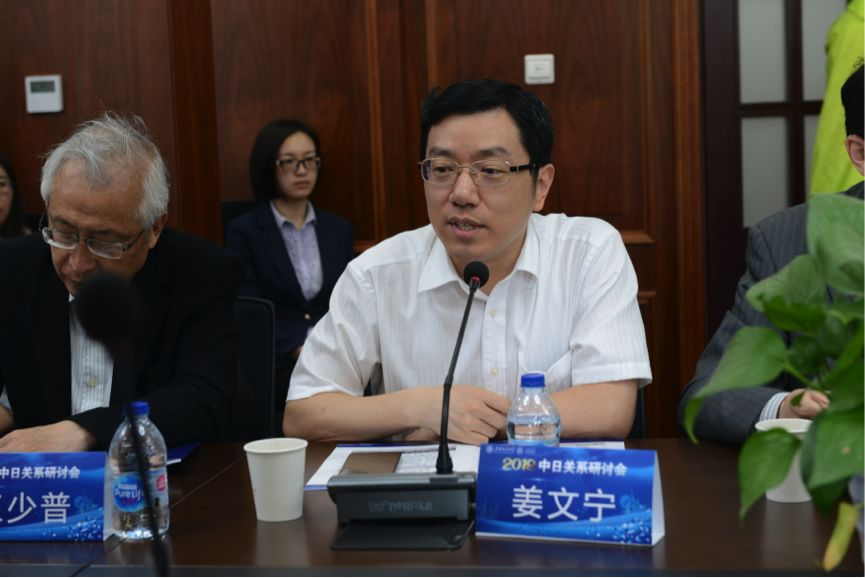
Secretary Jiang Wenning delivers a speech
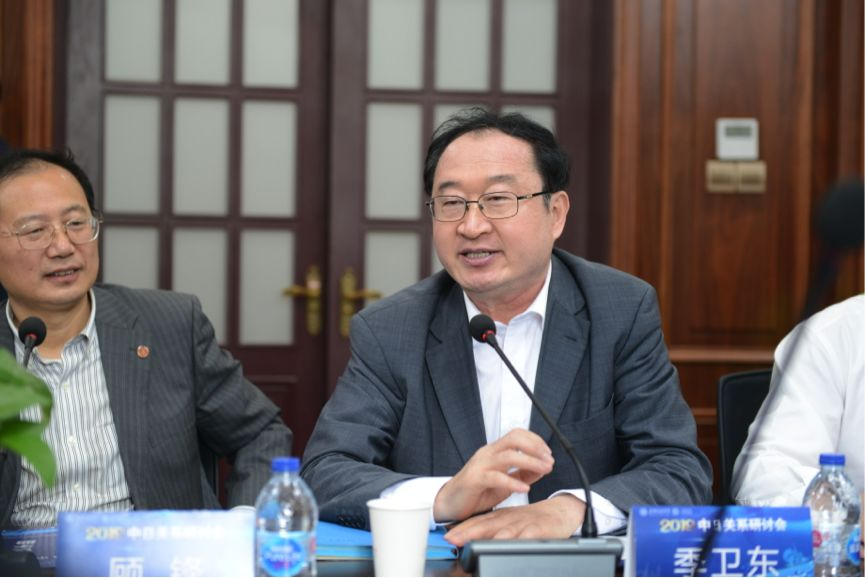
Director Ji Weidong delivers a speech
After the opening ceremony, the seminar entered the conference report and discussion. The first topic is "China Japan Foreign Policy". Wu Jinan, President of the Japan Society of Shanghai, Li Xiushi, Researcher of the Shanghai Institute of International Studies, Lian Degui, Professor of Shanghai Foreign Studies University, Hu Lingyuan, Director of the Japan Studies Center of Fudan University, Bao Xiaqin, Professor of the School of International Relations and Public Affairs of Fudan University, and Gao Lan, Deputy Director of the Japan Studies Center of Fudan University, expressed important views. From the perspective of the basic concept of New China's foreign policy towards Japan, Abe's policy towards China, mutual trust, mutual benefit and mutual accommodation in China Japan relations, and the historical genetic characteristics and prospects of the Japanese Order and the era's foreign policy, they believed that there were three structural contradictions between China and Japan, namely, historical understanding, the Taiwan issue and territorial disputes. We should look to the future, base ourselves on the overall situation, reach consensus through compromise, and promote the transformation of China Japan relations from a strategic mutually beneficial relationship to a strategic partnership.
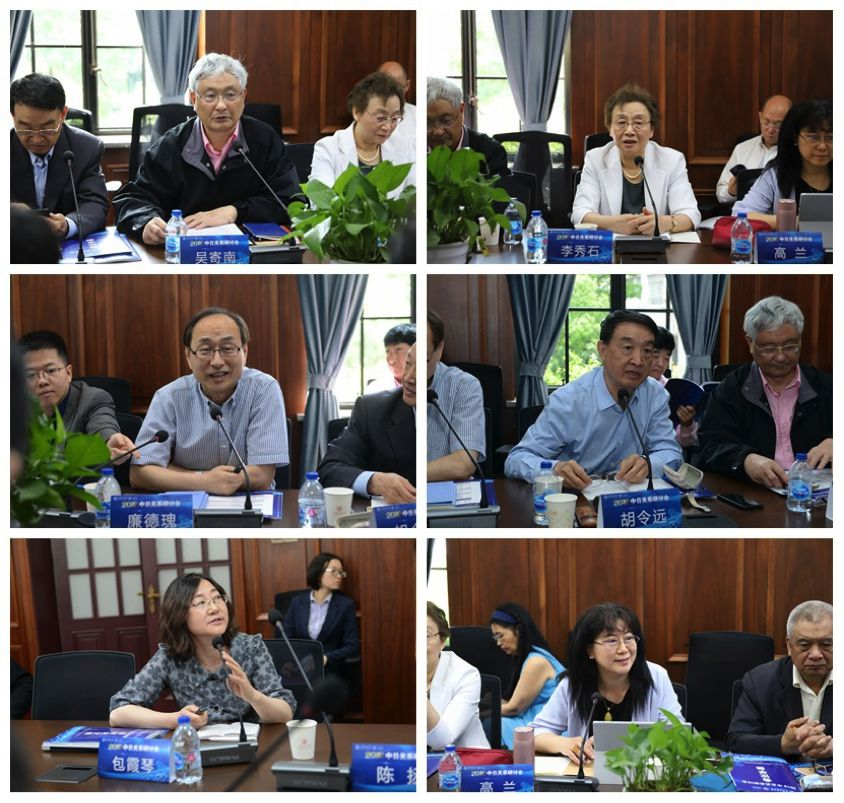
Six speakers on the first topic
The second topic of the seminar is "International Environment and China Japan Relations". Wang Shaopu, Professor of the School of International and Public Affairs of Shanghai Jiaotong University, Chen Youjun, Associate Researcher of the Shanghai Institute of International Studies, Zheng Hua, Professor of the School of International and Public Affairs of Shanghai Jiaotong University, and Zhai Yida, Lecturer, Distinguished Researcher of the Department of History of the School of Humanities of Shanghai Jiaotong University, Wang Xuan, and Cai Liang, Associate Researcher of the Shanghai Institute of International Studies, delivered special reports respectively. They explored and expressed their views on the current international environment and Sino Japanese relations from the perspectives of the changes in the world strategic situation and Sino Japanese relations, Japan's policy assessment of promoting the reform of the global economic governance system, the benchmark issues and methods of "Japan's right-wing" research, Japan's bacteriological warfare research in the new situation and the "reconciliation" road. They believed that Japan would maintain a dual policy towards China for a long time, strengthen cooperation with China economically, and follow the United States in security and implement the Asia Pacific strategy. China should maintain a clear understanding of this, strive for economic cooperation, and adhere to its own position on major issues of principle.
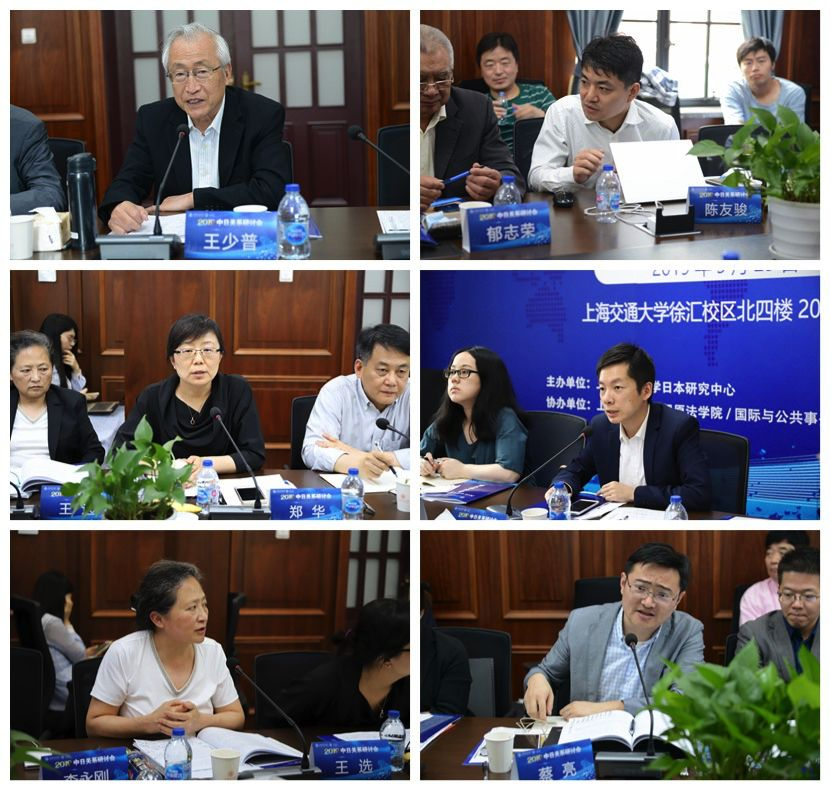
Six speakers on the second topic
The third topic of this seminar is "Japan's economy and China Japan cooperation". He Ping, associate professor of the Institute of International Studies of Fudan University, Xu Xianfen, professor of the Department of History of East China Normal University, Yu Zhirong, former head of the East China Sea Marine Surveillance and researcher of the China Ocean Development Research Association, Meng Xiaoxu, professor of the Department of International Politics of the Institute of International Relations, and Zhai Xin, professor of the School of International and Public Affairs of Shanghai Jiao Tong University, respectively discussed Japan's industrial restructuring Special reports on new trends in Japan's free trade strategy and the possibility of strategic proximity between China and Japan were made and discussed. They believe that in the six years since Abe took office, the implementation of Japan's EPA strategy has accelerated suddenly, showing increasingly the national identity and international image of an "advocate" and even a "leader". There is room for strategic proximity between China and Japan, and bilateral cooperation in economic, trade and finance will dominate bilateral relations for a long time. At the same time, due to the opposition between the two countries on the issue of historical understanding and the issue of Taiwan, it will also bring challenges to the strategic proximity between China and Japan.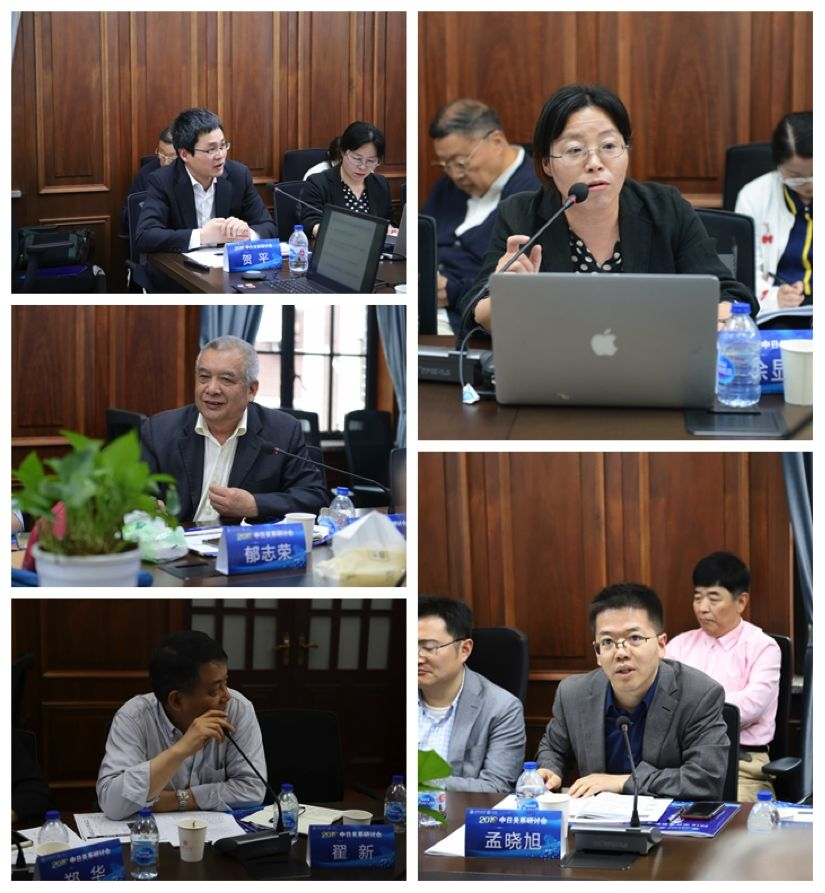
Five speakers on the third topic
Finally, at the stage of comprehensive review and conference summary, Professor Chen Zilei, director of the Japan Economic Research Center of Shanghai University of International Business and Economics, and Chen Zheng, associate professor of the School of International and Public Affairs of Shanghai Jiaotong University, made a comprehensive review of the conference, and Wang Shaopu, researcher of the Japan Research Center of Shanghai Jiaotong University, made a summary of the conference. Their summary pointed out that, first of all, we should recognize the basic judgment of the uncertainty of the international situation that "the great change has not occurred in a hundred years"; Secondly, compared with China US relations, China Japan relations are relatively clear at present, but it is also necessary to maintain cautious optimism and recognize the potential instability of China Japan relations; Finally, when making diplomatic judgments, it is necessary to balance domestic and foreign situations, and pay attention to the views and voices of domestic and foreign diplomatic situations.
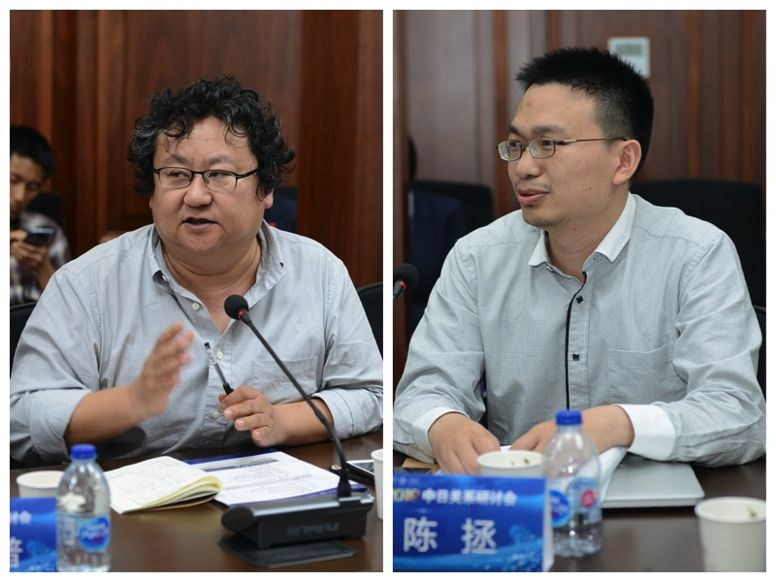
Two reviewers
The seminar focused on the following topics: First, the gains and losses of Sino Japanese relations after the war, especially since the resumption of diplomatic relations, and their causes; Second, the current domestic, foreign, economic, trade and financial trends of Japan and the characteristics of its China policy; Third, the strategic positioning of China Japan relations and the paths and countermeasures to open up the situation of bilateral relations, discussed the domestic and foreign trends of the Japanese archipelago and its policies towards China under the drastic changes in the international situation, analyzed Japan's economic situation and the problems and prospects of China Japan cooperation, and looked forward to the status and role of China Japan relations in the Asia Pacific international pattern and global governance. The seminar actively made suggestions on relevant international affairs and contributed fruitful research results to further improve China Japan relations.
